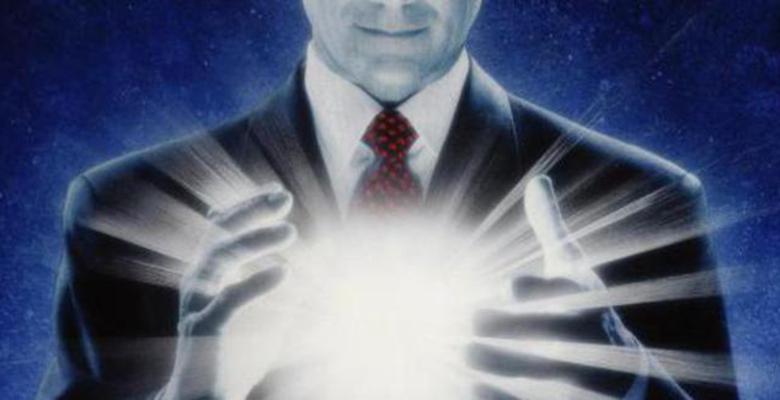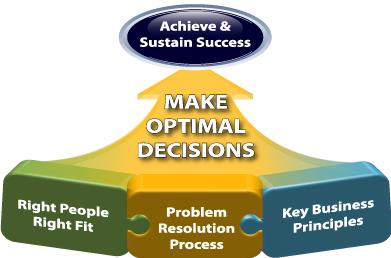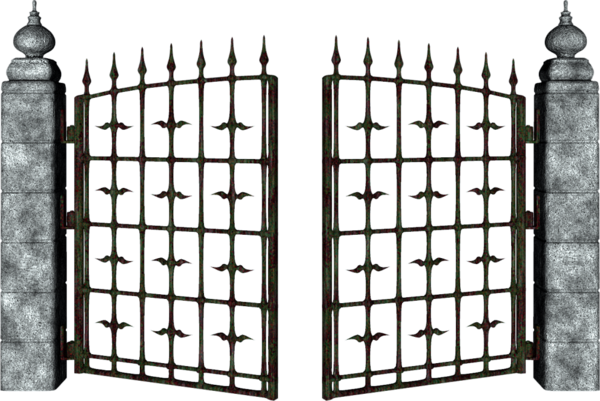Product Development Group
IDEA' s & INVENTION STRATEGIES IN MOTION
Issues - Strategies - Solutions - Resources
MAKING IDEA'S HAPPEN!
Overcoming Obstacles
Between Vision & Reality
www.GatewayProductDevelopmentGroup.com
Welcome! We want you to know that we offer Premier Services that will add overwhelming depth to each of our client's unique idea, invention or product development experience. Join with our Mastermind Team as we bring your project from vision to reality in the worldwide consumer marketplace!
GatewayProductDevelopmentGroup.com's goal is to create a lasting, memorable and very positive experience for our clients. Long gone are the days of being satisfactory, there is way too much competition out here to be less than stellar or exemplary when it comes to customer and client service. Additionally, it’s no longer just about the product we provide in partnership with you. Service, support, sales, operations and every other department within our organization works in tandem, delivering the same amazing service to our customer's and client's to keep them coming back to our outstanding services.
According to JW Davis, Gateway Product Development Groups founder, President and an expert in customer satisfaction, “Customer service is not a department, it’s a fantastic foundation for our philosophy.” Going above and beyond what is expected is an important factor in getting the customer to your product idea and invention to come back again and again to purchase what you are offering to the market. Your brand is exposed to the market through a multitude and wide variety of channels we have. We also use search engine results and social media channels to help build your idea, invention or product to our client list.
GatewayProductDevelopmentGroup.com provides your idea, invention, product or service so that the customer experience can be affected in many ways. The idea, invention, product or service that you create today will have a lasting impression on the customer's journey as they come in contact with your brand, dozens, hundreds, thousands or millions of times.
Here are five top tips we provide for our 5-star service.
* We define customer service brand values for our clients and what constitutes a 5 Star Customer Experience.
* We manage the Customer Journey so it meets and exceeds customers’ expectations from end to end
* We have a trusted team who understand your values, the part they have to play in delivering them, and have the skills, knowledge and confidence to do so.
* Our team is fully engaged through strong leadership to guide and support them to deliver a consistently 5 star customer experience.
* Our systems and resources are aligned to the 5 Star Customer Experience you need to create so we help, not hinder our team to deliver the results to get your idea, invention, product or service to the marketplace and be a financial success for you!
We Thank You for visiting our website and learning about what we do. Save us a one of your favorite websites and come back often. Please feel free to contact us anytime. Our mastermind team of experts can help lead you to the success you dream of beyond your wildest dreams! Call us today! Telephone: 727.657.3339 or use the form below to contact us. We look forward to speaking with you!
JW Davis
Founder & President
Welcome to GatewayProductDevelopmentGroup.com
What Is An Inventor and
What It Means To Invent
Inventions fascinate people. Almost universally. The further we judge an invention from being within our own capabilities to produce, the more fascinated we are with it. I doubt I would have ever thought of the aerofoil. Even simpler inventions win from us a sort of applause for the winner that easily could have been me, had I been a little quicker. If the current sticky-note inventor had not been born I am sure many other people would have thought of it.
Most of us have heard the phrase, "necessity is the mother of invention." This allegedly American proverb (actually it is much older) is accepted as an adequate explanation for inventions, while saying nothing at all about what "is" an invention. The French, in a curiously similar manner, say "Fear is a great inventor." Even Mark Twain felt compelled to declare an abstract link to inventing when he said, "Accident is the name of the greatest of all inventors." While necessity, fear, and accidents may all be observable and materially present preceding the emergence of an invention, none of these defines an invention; none of these tells us how a human being invents. At best, these phrases describe a catalyst or a motivator, these are not complete descriptions. These are not definitions.
The word "invention" means finding or discovery, if my introduction to Latin is of any value. This might give us some insight initially but let us explore whether that which is discovered is original or the result of some previous input. The words of Sir Joshua Reynolds (1723-1792), both objective and sincere, appear worthy of investigation: "Invention strictly speaking, is little more than a new combination of those images which have previously gathered and deposited in the memory; nothing can come from nothing." The key contention proffered by Sir Joshua Reynolds is, nothing can come from nothing.
The human reaction often elicited by an invention when perceived initially reveals some universal consent worth noting. For often thereat we hear exclamations such as, "That guy was thinking!" or "what a clever idea!" If these two exclamations have value, we can then say that thoughts and ideas are essential to inventions. What is a thought? What is an idea? If we allow that thoughts are the work of the mind, and if we further allow that ideas are that upon which the mind works we can readily explore and formulate a rational doctrine about inventing, even if it is done on a hypothetical premise. That which is hypothetical in the formula is not at all far-fetched or irrational. Let us first look at the material substance of the act of thinking, the idea. From there we can easily grasp how this thing called the idea can be manipulated.
The idea is the mind's representation of a reality. This is the common understanding in western civilization. The mind acquires and accumulates ideas, first from sense experience after said experience passes through the process of abstraction. Often, with the theater of life's experiences, sense experience is stored in the proper power but abstracted essences arrived at by the mind working upon sense experience, are stored in another faculty, the intellectual memory. These abstracted essences are ideas.
Ideas are classified under several categories but let us briefly consider the category of complexity. An idea is either simple or compound. A simple idea needs only one note to describe it. "Dark" or "fast" or "wet" or "yellow" are examples of simple ideas. A compound idea uses multiple simple ideas to describe it. Most of our ideas are compound that is why we have dictionaries listing the set of simple ideas which define a compound idea. Within this realm of activity lies the process of inventing. Thus we see, by the fact that dictionaries exist, that we are capable of taking apart compound ideas into the group of specific simple ideas describing said compound idea. We call this "taking apart" analysis. We can also perceive that simple ideas can be combined to construct new and original compound ideas. This "combining" is called synthesis. I think the observant reader already knows by now what an inventor is or what it means to invent.
Analysis and synthesis are two simple acts of the mind and these two actions comprise the heart of inventing. Inventing is essentially an act of synthesis. What is synthesized? In the act of inventing that which is synthesized is an arrangement of simple ideas and this arrangement comprises a new compound idea. While the arrangement may be original the constituent parts are not original. Similarly a very common thing like a pile of bricks may be rearranged thereby producing a structure unlike any previous arrangement of bricks. The bricks are not an original idea. The new structure could be very original. Who then, is most likely to invent?
Every human being with functioning mental faculties can invent. One need only perform the simple act of the mind called abstraction in order to store, initially from sense experience, a library of simple ideas. These ideas thus stored are recalled and arranged in a new and original scheme that usually responds to a need. What an inventor does first is define a need. He then goes to work arranging ideas until he finds an arrangement that works. The disposition toward inventing, that is the willingness to define a need, as well as the willingness to search within and without in order to discover an arrangement that solves the need, is of course essential to the inventor's personality. In addition to this necessary disposition is the large library of simple ideas, abstracted and stored from many previous projects.
Due to the large variety of life experiences from which he can draw, the seasoned inventor sometimes appears way too confident about the challenge in front of him. Just ask him to tell you about all of the things he made that didn't work. You will not only enjoy a good laugh, you will also come to know that good inventors have failed often. They did not fail permanently because every failure added to their library of ideas. Failing intelligently is foundational to becoming a good inventor.
The Difference Between An Idea And An Invention
How To Properly Document Your Idea
The dictionary defines an invention as "a device, contrivance or process originated after study and experiment." An idea is defined as "a formulated thought or opinion." With these definitions, you should ask yourself how much study and experiment have you really done on your idea. Is your idea a tangible solution or just the recognition of a problem that needs a solution?
How many times have you said to yourself "it would be great if there were a product that could solve this problem?" Many of us have had that same thought many times before. Unfortunately, often times, we are not identifying a real solution but just the need for a solution. Additionally, we have seen many inventors make the same mistake confusing their "identification of a problem" for an actual solution, thus spending unnecessary time focusing on the problem and not the solution.
The real challenge with inventing is not just identifying a need, but also figuring out a solution.
This may seem common sense; however, we can tell you that we have talked with hundreds inventors who thought they had an invention, when in fact they had an idea without a well-defined solution.
The inventor can document his invention in one of the following two ways:
1. Inventor's Notebook or Form
Use a bound notebook or record of invention form to record your invention by clearly describing the idea and concept and signing and dating in ink. Also, have two other people sign and date the book or form as witness to your invention.
The description should include the following: consecutively numbered pages, the purpose of the invention, a detailed explanation of the invention, drawings or sketches and a list of features and advantages.
2. Disclosure Documents
The inventor can utilize the USPTO "Disclosure Document Program" and file disclosure documents; however, the method described above is as good or better than filing disclosure documents. The USPTO charges a nominal fee for filing these documents.
Note - documenting your invention is not a substitute for a provisional or non-provisional patent. The purpose is to establish a date of record for your invention and to provide you with the proper documentation in the event of a dispute.
JW Davis is President and Founder of GatewayProductDevelopmentGroup.com
GatewayProductDevelopmentGroup.com offers a low cost, low risk solution for helping inventors through each step of the invention process. They have created a simple and streamlined process for connecting inventors with manufacturers for the purpose of licensing inventions for royalties. Call them today at 727.657.3339. You'll be so glad you did!
We Would Be Excited To Hear From You!
Our Product Development
Strategies We Endorse
4 Powerful Steps We Support
What does a product development consulting company like us do? We help different businesses, companies or individuals in creating profitable, award-winning products based on the needs and demands of their target market. Some of the services we do may include planning, research, portfolio management, and actual product creation.
Here's what we do and how we help you:
1. Goal setting. We not only focus on creating new products but also in improving current products to make them more suitable to the needs and demands of the target market. Before we work with you, we need to have a solid understanding as to what you would like us to do for you. Are you going to need help in creating brand new products or are you going to need help in making your current product line more saleable?
2. Evaluate and come up with strategies and solutions. After knowing the needs and demands of our clients, we spend at least a couple of days with our mastermind team experts to decide if this is something that your business or company can do. We only accept projects that are realistic and doable with the strategies and solutions our experts recommend. After we evaluate and determine the feasibility of moving forward, and we know for certain that this is something that our client's business or company can handle, we create an action plan and present it to you. We will explain our action plans and seek agreement before we proceed.
3. Time required. We feel it is very important that we give our clients a solid idea as to when we can deliver their desired results. We make a list of all the things that we and our team will need to do and decide how many days it will take us to finish the whole project. Many times, we give ourselves an additional 4-5 business days that we can certainly use should we encounter unexpected delays.
4. Consider the target market. When helping our clients in improving a certain product or when creating a new one, we make sure that we take into consideration the target market. We make sure that all the features, selling points, and benefits match the needs and demands of the people in the consumer market. We spend a lot of time doing market research and interviewing potential buyers to get to know their preferences and the elements that can affect their buying decisions. The more we know about the people who will buy the product, the higher our clients chances are of being successful and selling more of their product. We help our clients in creating products that will match the needs of their prospects.
Please feel free to call us and lets discuss how we can help you accomplish your dream! Call us today...727.657.3339. We would love to hear from you!
3 Strategies We Recommend And Support
For Product Development Success
The Product Development Consulting Services being offered by our mastermind team of experts is exciting and dynamic. Our goal is to help organizations create market-winning product portfolios using customer-centric elements and techniques for outstanding success.
Here's more of what we do:
1. We do extensive Market research. The first thing that you, as our client need to do, is to have a full understanding of the target market of your product. What are the needs and demands for unlimited success? What are the pressing issues? What are the areas of interest and the things that they, as our client, would like to learn about and understand? Knowing all these things can help you, as our client, determine the best products that your business or company can create. For example, if the research that we do confirms that the target market is looking for cost-effective vacuums that can be used on all types of floors, then we need to urge or recommend to you as the owner of the business or company of the product you represent, to develop your particular product to meet the demands of the audience and consumer.
2. We Determine marketability. As a team of mastermind consultants, after careful evaluation, research and intelligence, we move forward with our solutions and strategies and to make sure that our clients will profit from the product that they have created. We perform other research and intelligence gathering activities, this time, to determine the actual number of people who are more than willing to spend their precious dimes on the new product.
3. We conduct surveys. We have a team of experts who get inside the minds of the target market and see what exact features or benefits that they would like to enjoy on a particular product. Our experts send them surveys or questionnaires through email or through direct mail. Our experts also sometimes call them up one by one or ask them to go to a certain website.
We are available to talk with you on your own convenient time-schedule. Just give us a call at 727.657.3339. We'll make arrangements to talk with you about your idea, invention or product. Again, We'd love to hear from you!
GATEWAY




























